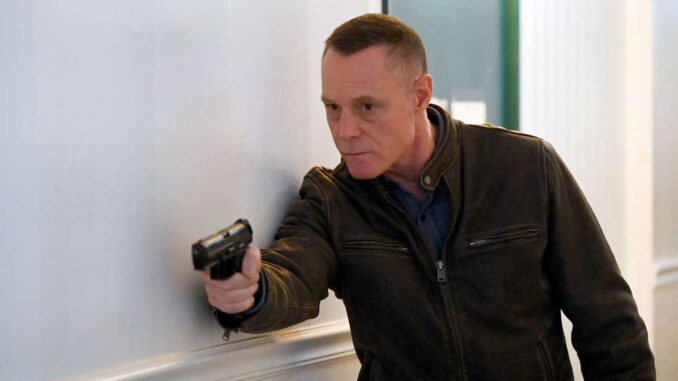
The Bear and the Bird: A Tale of Two Jasons, One Hank, and a Nickname Voight Would Gut
Detective Hank Voight, the granite-faced patriarch of Chicago P.D.’s Intelligence Unit, is not a man known for his soft spots. He’s a creature of shadows and brutal pragmatism, a guardian angel with a fist full of barbed wire. So, the thought of his portrayer, Jason Beghe, possessing a nickname that evokes images of fluffy bunnies and sunshine is, frankly, absurd. And the fact that this nickname is reportedly "Fluffernutter" (a delectable sandwich spread of peanut butter and marshmallow crème) is an irony so thick, you could spread it on toast.
Imagine Voight walking into the break room, the air heavy with the unspoken tension of a recent collar gone south. He expects the usual: Ruzek’s nervous energy, Atwater’s weary understanding, Upton’s sharp gaze. Instead, he hears Platt's singsong voice from behind the counter, “Hey Fluffernutter! You want coffee? Decaf, like always?”
Voight would stop dead, his eyes narrowing like a hawk spotting a field mouse. The silence would be deafening. The mere suggestion that Beghe, a man who embodies the grit and moral ambiguity of Voight, could be associated with something as lighthearted as marshmallow fluff would send a shockwave through his carefully constructed persona.
The dissonance is the beauty of it. Jason Beghe, the actor, is undoubtedly a multifaceted individual. He's proven his dramatic range time and again, inhabiting complex characters with a deep understanding of human darkness and redemption. He's likely a charismatic individual with a sense of humor that allows him to embrace such a whimsical nickname. But Voight is a character distilled down to his essence: a burning desire for justice, fueled by a past of trauma and a present riddled with compromises. He’s a man who operates on the fringes of legality, navigating the moral gray areas with a chilling efficiency. He has no time for fluff.
The "Fluffernutter" moniker exposes the inherent artificiality of acting. It's a reminder that behind the gruff exterior and the tortured soul, there’s an actor playing a role. It dismantles the carefully constructed illusion that Beghe is Voight. This is a concept that would likely infuriate Voight. He thrives on the fear and respect he commands. The idea that someone, somewhere, might see him and think, "Oh, that's just Fluffernutter playing dress-up," would undermine his authority and dilute the impact of his actions.
Furthermore, a nickname like "Fluffernutter" speaks to a level of intimacy and affection. It suggests a camaraderie and warmth that Voight actively avoids. He keeps his distance, preferring the loneliness of leadership to the messy complexities of genuine connection. He cultivates a team, not a family. The thought of someone calling him, or even thinking of him as "Fluffernutter" would be a violation of the carefully guarded walls he has erected around his heart.
Ultimately, the contrast between the alleged nickname and the character is a testament to Beghe's skill as an actor. He can embody the dark complexities of Hank Voight so convincingly that the idea of him being a "Fluffernutter" is almost paradoxical. It's a reminder that even the most hardened characters are brought to life by real people with a range of emotions and experiences that extend far beyond the confines of the screen. And it’s a delicious irony that a nickname so antithetical to the character would likely send Voight into a simmering rage, a rage that would only further solidify his image as the unyielding, uncompromising enforcer of Chicago. The thought of it all, really, is quite a Fluffernutter of a situation.
